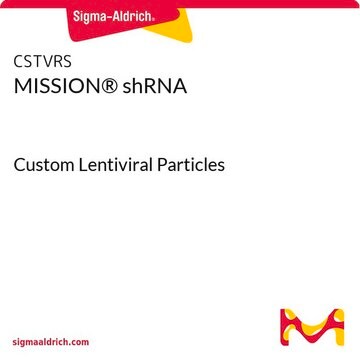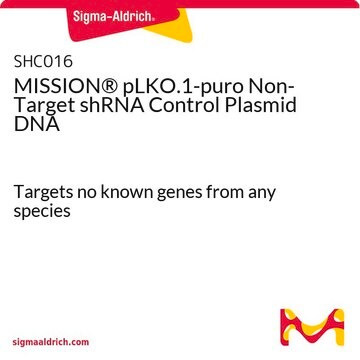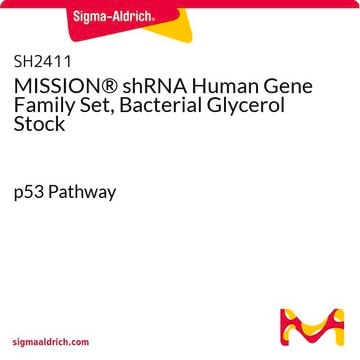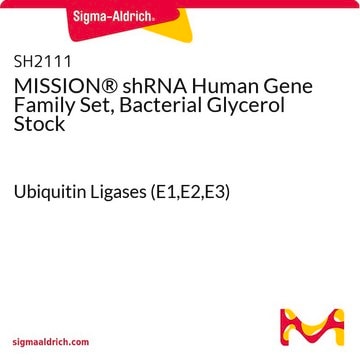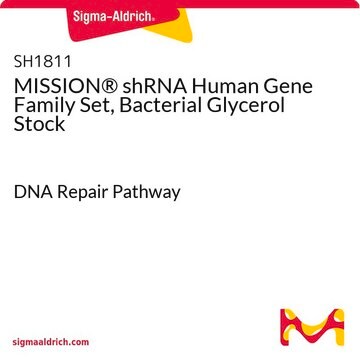Recommended Products
Looking for similar products? Visit Product Comparison Guide
Related Categories
General description
Application
Other Notes
Legal Information
Storage Class Code
12 - Non Combustible Liquids
WGK
WGK 2
Flash Point(F)
Not applicable
Flash Point(C)
Not applicable
Choose from one of the most recent versions:
Certificates of Analysis (COA)
Sorry, we don't have COAs for this product available online at this time.
If you need assistance, please contact Customer Support.
Already Own This Product?
Find documentation for the products that you have recently purchased in the Document Library.
Customers Also Viewed
Articles
MISSION shRNA reduce the expression of specific target genes by targeting the specific mRNA therefore reducing the corresponding protein expression.
MISSION shRNA reduce the expression of specific target genes by targeting the specific mRNA therefore reducing the corresponding protein expression.
MISSION shRNA reduce the expression of specific target genes by targeting the specific mRNA therefore reducing the corresponding protein expression.
MISSION shRNA reduce the expression of specific target genes by targeting the specific mRNA therefore reducing the corresponding protein expression.
Related Content
Find shRNAs for Individual Genes. Over 150,000 pre-cloned shRNA constructs targeting more than 15,000 human and 15,000 mouse genes.
Our team of scientists has experience in all areas of research including Life Science, Material Science, Chemical Synthesis, Chromatography, Analytical and many others.
Contact Technical Service
